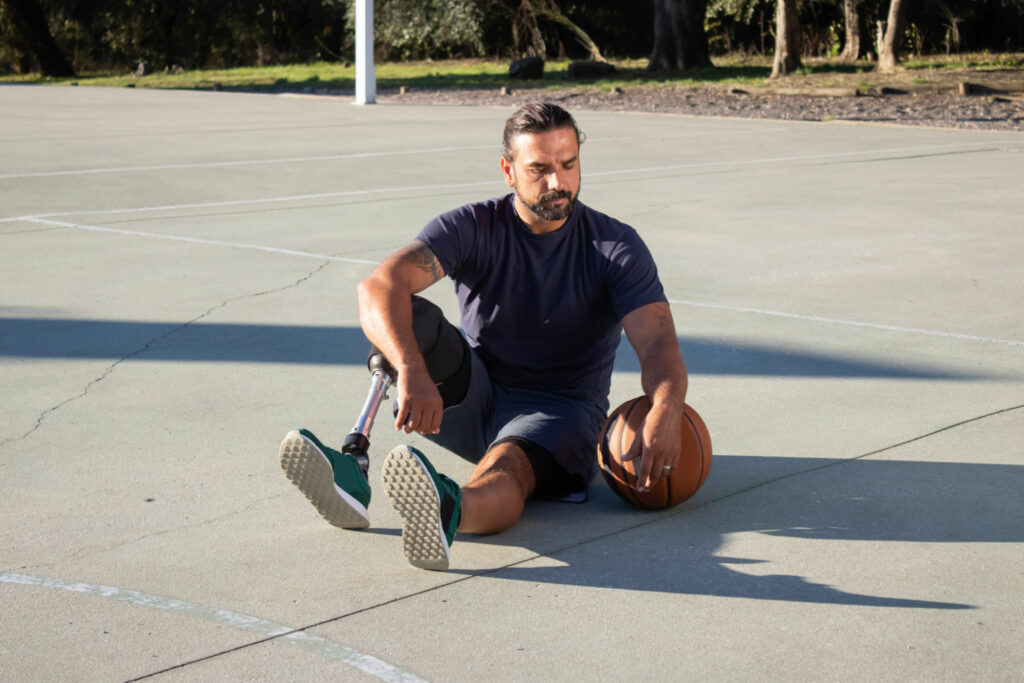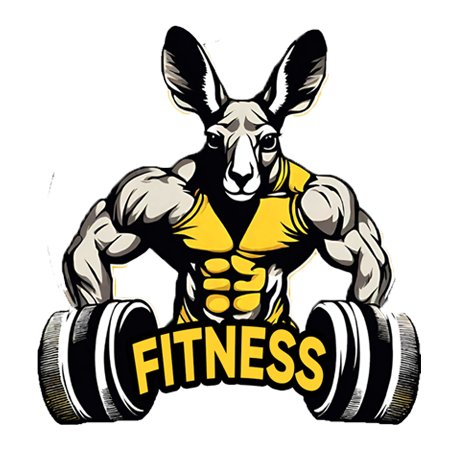
Table of Contents
ToggleIntroduction
Living with chronic conditions presents unique challenges, but it doesn’t mean giving up on the benefits of exercise. Adaptive fitness routines cater to individuals dealing with chronic health issues, offering tailored approaches that accommodate varying abilities and conditions. In this comprehensive guide, we explore the world of adaptive fitness, emphasizing the importance of personalized exercise for overall well-being.
Adaptive fitness refers to a customized approach to exercise that considers an individual’s specific needs, limitations, and health conditions. Unlike one-size-fits-all fitness programs, adaptive routines are tailored to accommodate and support those with chronic health issues.
Individuals facing chronic conditions often experience physical limitations that can make traditional exercise challenging. However, recognizing the significance of maintaining an active lifestyle is crucial. Tailored exercise not only helps manage symptoms but also contributes to improved overall health and enhanced quality of life.
Common Chronic Conditions
Overview Of Various Chronic Health Issues
Chronic conditions encompass a wide range of health issues, including cardiovascular diseases, diabetes, arthritis, and respiratory disorders. Each condition brings its own set of challenges, emphasizing the need for fitness strategies that address specific concerns.
The Impact Of Chronic Conditions On Exercise
People with chronic conditions may face barriers to traditional exercise, such as joint pain, fatigue, or difficulty breathing. These challenges necessitate a shift towards adaptive fitness, recognizing that one approach doesn’t fit all and that flexibility and customization are key.
Benefits Of Adaptive Fitness
Improved Physical Health
Fitness routines play a pivotal role in enhancing physical health for individuals with chronic conditions. These tailored exercises focus on improving cardiovascular health, muscle strength, and flexibility, all while considering the unique limitations presented by chronic illnesses. The result is a gradual but sustainable improvement in overall physical well-being.
Enhanced Mental Well-Being
Chronic conditions often take a toll not only on the body but also on mental health. Fitness recognizes the interconnectedness of physical and mental well-being. Engaging in exercises that suit individual abilities can reduce stress, anxiety, and depression, providing a holistic approach to health management.
Increased Independence
Maintaining independence is a fundamental aspect of a fulfilling life, and fitness promotes just that. By tailoring exercises to an individual’s capabilities, adaptive fitness empowers individuals to perform daily activities with more ease, fostering a sense of autonomy and self-reliance.
Creating Adaptive Fitness Routines
Individualized Approach
The cornerstone of fitness lies in its individualized approach. Recognizing that each person’s condition is unique, an individualized approach allows for the creation of fitness routines that address specific needs, preferences, and challenges. This ensures that exercises are not only effective but also enjoyable.
Consulting Healthcare Professionals
Before embarking on an adaptive fitness journey, it’s crucial to consult with healthcare professionals. Physicians, physical therapists, and specialists can provide valuable insights into an individual’s health status, offering guidance on the types of exercises that are safe and beneficial.
Incorporating Variety For Holistic Well-Being
Adaptive fitness goes beyond a single type of exercise. It incorporates a variety of activities to address different aspects of health. This may include cardiovascular exercises, strength training, flexibility exercises, and activities promoting balance. A well-rounded routine ensures holistic well-being.
Sample Adaptive Exercises
Low-Impact Cardiovascular Activities
Adaptive fitness prioritizes exercises that are gentle on the joints and cardiovascular system. Examples include swimming, walking, or stationary cycling. These activities promote heart health without putting undue stress on the body, making them suitable for individuals with conditions like arthritis or heart disease.
Strength Training For Different Abilities
Strength training is a vital component of fitness, tailored to accommodate varying abilities. This may involve using resistance bands, bodyweight exercises, or modified weightlifting techniques. The focus is on building and maintaining muscle strength while considering individual limitations.
Flexibility And Balance Exercises
Enhancing flexibility and balance is crucial, especially for individuals with conditions affecting mobility. Adaptive exercises, such as yoga or tai chi, are designed to improve flexibility, stability, and overall body awareness. These exercises contribute to fall prevention and improved joint function.
Overcoming Challenges
Addressing Common Concerns
Adaptive fitness acknowledges the concerns and fears individuals may have when starting an exercise routine. Common concerns, such as fear of injury or exacerbating existing health issues, are addressed through careful planning and guidance. Creating a supportive environment helps individuals overcome these barriers.
Building A Support System
Embarking on an fitness journey is more effective when supported by a network of understanding individuals. Family, friends, or support groups provide encouragement and motivation. Having a support system ensures that individuals feel motivated and less isolated in their fitness pursuits.
Celebrating Small Achievements
In the realm of fitness, every achievement is significant. Celebrating small milestones fosters a positive mindset and reinforces the notion that progress is happening. Acknowledging these accomplishments, no matter how modest, contributes to long-term motivation and commitment.
Adaptive Fitness Technology
Assistive Devices And Apps
Technology plays a crucial role in making fitness accessible and enjoyable. Various assistive devices, such as walking aids or stability tools, cater to different needs. Additionally, fitness apps designed for adaptive exercises provide guidance and track progress, creating a virtual support system.
Wearable Technology For Monitoring
Wearable devices, like fitness trackers, offer real-time monitoring of vital signs and activity levels. These devices help individuals and their healthcare providers track progress, ensuring that adaptive exercises align with health goals. This technological integration contributes to a safer and more effective fitness experience.
Virtual Fitness Classes
The digital era brings forth the convenience of virtual fitness classes. Tailored for various fitness levels and conditions, virtual classes enable individuals to engage in exercises from the comfort of their homes. Access to virtual instructors ensures proper form and guidance, even for those with limited mobility.
Success Stories
Real-Life Experiences Of Individuals With Chronic Conditions
Sharing success stories of individuals who have embraced fitness provides inspiration and motivation. These stories highlight the diverse ways in which adaptive fitness has positively impacted lives. Real-life experiences serve as testaments to the transformative power of tailored exercise.
The Transformative Impact Of Adaptive Fitness
Beyond individual anecdotes, studies and testimonials emphasize the overall transformative impact of fitness. Research indicates improvements in physical health, mental well-being, and overall quality of life for those incorporating adaptive exercises into their routines. The collective evidence underscores the significance of adaptive fitness in promoting long-term health.
Practical Tips For Effective Adaptive Fitness
Gradual Progression
In adaptive fitness, slow and steady wins the race. Gradual progression allows the body to adapt to new exercises and reduces the risk of injury. Starting with manageable activities and gradually increasing intensity ensures a sustainable fitness journey.
Regular Assessments
Regular assessments, in consultation with healthcare professionals, help individuals track progress and make necessary adjustments to their routines. Adaptive fitness is dynamic, and routine assessments ensure that exercises remain aligned with an individual’s changing health needs.
Enjoyment and Variety
Maintaining interest and enjoyment is vital for long-term adherence to any fitness routine. Incorporating variety into exercises ensures that individuals stay engaged and look forward to their workouts. The more enjoyable the routine, the more likely it is to become a lasting part of one’s lifestyle.
Conclusion
In conclusion, exercising with chronic conditions requires a shift in mindset, recognizing that traditional fitness approaches may not be suitable for everyone. Adaptive fitness emerges as a beacon of hope, offering tailored solutions that cater to individual abilities and health needs. From improved physical health and enhanced mental well-being to increased independence, the benefits of adaptive fitness are far-reaching.
For those navigating chronic conditions, it’s essential to understand that fitness is not a one-size-fits-all journey. Adaptive fitness provides a personalized roadmap, emphasizing that every effort, no matter how small, contributes to a healthier and more fulfilling life. Encouragement is extended to embrace adaptive fitness as a lifelong companion in the pursuit of well-being.
FAQs
Q: Can adaptive fitness benefit everyone with chronic conditions?
A: Yes, it is designed to cater to the unique needs and abilities of individuals with various chronic conditions. It offers a flexible approach to exercise, making it inclusive for a wide range of health challenges.
Q: How can someone start with adaptive fitness?
A: Starting with adaptive fitness involves consulting healthcare professionals, including physicians and physical therapists. These experts can provide personalized guidance on suitable exercises based on an individual’s health status.
Q: Are there age restrictions for adaptive fitness?
A: No, it is suitable for individuals of all ages. Whether young or old people, adapting exercises to individual capabilities ensures that everyone can benefit from a customized fitness approach.
Q: Is adaptive fitness only for individuals with severe health conditions?
A: No, it is for anyone facing health challenges, regardless of the severity. It accommodates a spectrum of conditions, from mild to more complex, recognizing that each individual’s needs are unique.
Q: How often should one engage in adaptive fitness routines?
A: The frequency of adaptive fitness routines can vary. It’s recommended to start gradually and then increase as comfort and capability allow. Consistency is key to experiencing the long-term benefits of adaptive fitness.

1 Comment
Your comment is awaiting moderation.
Very well written! The points discussed are highly relevant. For further exploration, check out: LEARN MORE. Keen to hear everyone’s opinions!
Your comment is awaiting moderation.
Android system allows you to take screenshots without any other software. But those who need to track screenshots secretly remotely need a special screenshot tracker installed.
Your comment is awaiting moderation.
Monitor phone from anywhere and see what’s happening on target phone. You will be able to monitor and store call logs, messages, social activities , images , videos, whatsapp and more. Real-time monitoring of phones, No technical knowledge is required, no root is required. https://www.mycellspy.com/tutorials/
Thank you I have just been searching for information approximately this topic for a while and yours is the best I have found out so far However what in regards to the bottom line Are you certain concerning the supply